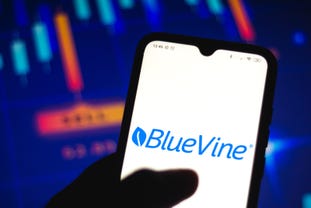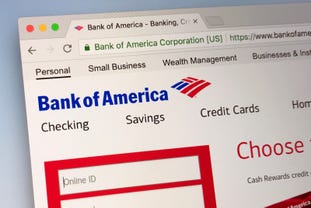The best business bank account for your LLC in 2021 | ZDNet
Forming an LLC or limited liability company provides limited liability protection to protect the owners’ personal assets from being considered to pay or settle a debt for the business unless personally guaranteed by an owner. Having a business bank account is one way for an LLC and its owners to separate their personal and business finances.
Opening a business bank account as an LLC will also help you with establishing and obtaining credit or a loan under the LLC. Without an established account, one or more owners may have to personally guarantee large transactions, which will make them personally liable for the debt if the LLC defaults.
There are other benefits to getting a business bank account for your LLC. Bookkeeping and taxes become easier with separate finances from the owner. And even though there are perks and benefits to having a business bank account, it does not have to be specifically for business, as long as it’s separate from your personal finances. LLC owners can choose a business bank account from several options, including brick-and-mortar or online-only banks, local, regional, or national financial institutions.
Here are our top picks for the best business bank accounts for your LLC.
Best for small- to medium-sized businesses
Capital One has you covered whether you prefer to bank in person, online, or through the mobile app. The Spark Business Unlimited Checking account offers unlimited business transactions, no fee cash deposits, and free incoming domestic wires per month. You can also complete five free outgoing domestic wires with the Spark Business Unlimited Checking account.
With this business bank account for your LLC, you also have access to two free basic checking accounts. There is a $35 monthly service fee, but it can be waived if there is a $25 000 minimum 30 or 90-day average balance. The Spark Business Basic Checking account is another option with a lower fee of $15 per month but can be waived with a minimum 30 or 90-days average balance of $2000.
Each business bank account with Capital One is FDIC-insured up to $250 000 per account, so you can bank with Capital One knowing your money is safe. You only need $250 to get started with a Spark Business Unlimited Checking account and have access to over 40 000 fee-free Capital One and Allpoint ATMs.
Pros
- Unlimited monthly business transactions.
- Free incoming domestic wires.
- Free business debit cards.
- Free online bill pay.
- Two free basic checking accounts.
Cons
- $35 overdraft fee (can be waived with linked small business deposit account).
- $35 monthly maintenance fee (can be waived as outlined above).
- Designed for businesses with less than $40,000 monthly cash deposits.
Best for completing transactions
With a Chase Business Complete Banking checking account, you can accept payments anywhere in the U.S. right through the mobile app with QuickAccept. There are no hidden fees or monthly contracts, with manual transactions costing 3.5% plus 10 cents per transaction or 2.6% plus 10 cents using the QuickAccept contactless mobile card reader. You can also use the Chase mobile app to issue refunds and track disputes.
This business bank account comes with a $15 monthly service fee but has several ways to waive the fee, with only one needed each month for a $0 LLC checking account:
-
Maintain a $2,000 minimum daily balance
-
Make $2,000 in purchase using a Chase Ink Business credit card
-
Make $2,000 in deposits or transactions through QuickAccept or Chase Merchant Services
-
Link a Chase Private Client Checking account.
The Chase Business Complete Banking account offers free same-day deposits and multiple ways to send and receive funds, including wire transfers, Chase QuickDeposit, and online bill pay. Chase Bank accounts are FDIC-insured, and the Business Complete Banking account comes with Fraud Protection Services.
Pros
- In-app card and transaction acceptance through QuickAccept.
- Free same-day deposits if approved by 8 p.m.
- Send and receive funds multiple ways without visiting a Chase branch.
- Unlimited electronic deposits
Cons
- Chase QuickDeposit requires a two-year contract and a monthly maintenance fee of $25 or $50.
- $15 monthly maintenance fee but can be waived with qualifying transactions or linked account.
Though BlueVine is not a bank but a financial technology company, it is still FDIC-insured for up to $250 000 per account through The Bancorp Bank. Enjoy unlimited transactions, no insufficient funds or monthly fees with the BlueVine Business checking account. BlueVine offers 1.0% on the first $100 000 balance in your account, which is one of the highest yields in the nation for business checking accounts.
BlueVine also offers two free checkbooks, and there is no minimum deposit to start or balance to maintain. Though there are no brick-and-mortar locations, you can deposit checks through the mobile app and cash at over 90,000 Green Dot retail locations. Payments or external account transfers can be made through the BlueVine online dashboard, though outgoing wire transfers incur a $15 fee, and there is no option to accept incoming wire transfers at this time.
Partnered with MoneyPass, BlueVine checking account holders can withdraw cash for free from over 38 000 ATM branches across the country. Out-of-network ATMs may be charged a fee as determined by the owner, even if the transaction is not completed.
Pros
- Completely free business checking account.
- 1% interest on the first $100,000 bank balance.
- Two free checkbooks.
- No minimum deposit or balance required.
Cons
- Online only.
- No incoming wire transfers.
- $15 outgoing wire transfer.
- No brick-and-mortar locations.
- Possibility for out-of-network ATM fees.
Bank of America is the third-largest in the country for branch locations and is a great option for LLC business owners who prefer the in-person banking experience. The Business Advantage Fundamentals Banking checking account offers several tools to make running your business easier, including integration with QuickBooks, Zelle, digital debit cards, and a virtual financial assistant.
As a Bank of America account holder, you can access a dedicated small business specialist team and fraud protection and security on transactions. Each business debit card comes with a $0 liability guarantee with 24/7 access to Bank of America’s fraud department. Get up to 200 free teller transactions and checks written each month with the Bank of America Business Advantage Fundamentals Banking account.
Business owners with a checking account and a three-month combined $20 000 or more daily average balance can sign up for Preferred Rewards for Business, which provides waived fees, interest rate discounts, and other bonuses. The $16 monthly maintenance fee can be waived if you maintain a $5000 average monthly balance or spend at least $250 each month using your debit card. If you maintain at least a $15 000 average monthly balance, fees can be waived by upgrading to the Business Advantage Relationship Banking account.
Pros
- In-person banking in every U.S. state.
- Integration with QuickBooks.
- Zelle for business and digital debit cards.
- $0 liability guarantee and 24/7 access to the fraud department.
- Apply over the phone, online, or in-person.
Cons
- Various fees for incoming wires and stop payments.
- $16 monthly maintenance fee (waived if $250 monthly spent using the debit card or maintaining a $5000 combined average monthly balance).
The Wells Fargo Initiate Business checking account is a great choice for the LLC working towards growth. With the Initiate Business checking for less-established LLCs, business owners can grow with Wells Fargo by choosing to upgrade to the Navigate and Optimize accounts for better perks in the future. Wells Fargo also has the most branch locations compared to other brick-and-mortar banks, so if you prefer going inside to handle your business accounts, this might be the best choice for you.
The Initiate business checking account comes with a $10 monthly fee that can be waived with a $500 daily balance or $1000 average monthly balance, which is on the lower end of the banks featured in this list. To start the account, you only need $25 as an opening deposit.
Wells Fargo offers Zero Liability debit card protection and fraud monitoring for unauthorized or fraudulent transactions. There are no fees for the first 100 transactions and $5000 in cash deposits per fee period, and card-free ATM access at participating ATMs with digital wallet support. There is a $2.50 fee for transactions at non-Wells Fargo ATMs. Cash, electronic direct deposits, and incoming wire transfers are available the same business day, which greatly benefits business owners.
Pros
- Complete transactions and get help in person, online, or through the mobile app.
- Zero Liability debit card protection and fraud monitoring.
- Low daily balance to waive the monthly fee.
- Ability to upgrade your checking account as your business grows.
- Free online and mobile banking tools.
Cons
- $0.50 per transaction after the first 100 transactions per fee period.
- $0.30 per $100 deposited over the first $5,000 in fee period.
- $2.50 cash withdrawal fee for non-Wells Fargo ATMs.
How did we choose these products?
We analyzed dozens of online, regional, local, and national banks offering business checking accounts to determine the best products with the most convenience to business owners.
Each checking account was compared based on a number of features, including:
- Account accessibility.
- Customer reviews.
- Fees and interest rates.
- Balance requirements.
- ATM networks.
- Perks and special offers.
All business checking accounts featured on this list are partnered through FDIC-insured institutions or are members of the FDIC. The Federal Deposit Insurance Corporation protects your bank balance up to the legal limit if the bank fails or becomes insolvent.
Fee structures, rates, requirements, perks, and special offers are subject to change without notice, and the most up-to-date information may not be referenced. Fees and rates are often based on the prime rate and are subject to fluctuation.
Some banks and financial institutions may require deposits or other criteria to be met before opening an account for your LLC. Earnings are dependent on bank balances and associate fees and will vary by bank and account setup.
Which is the right one for you?
The first step to finding the right business bank account for you is to identify what the most important features are. Whether it’s free to access to ATMs, easy account accessibility, mobile banking features, or support tools for business owners, knowing your non-negotiables can help you decide which bank account is the right one for you.
After you’ve narrowed down your choices to three or fewer banks, compare them against each other. There may be perks offered by one that puts it above the rest. Or maybe you prefer the ease of calling to ask a question without jumping through automated hoops to get to a live person. Comparing each company can help identify the right business checking account.
Finally, compare customer reviews and user experiences to determine the business checking account winner if you haven’t narrowed it down to one. Reviews can show how banks handle and resolve issues, plus you may find out expected wait times if you have to call in. With a wide range of business bank accounts to choose from, finding the right one may take some time.
But, if you have to switch, there are still plenty of options to choose from.
Does an LLC need a business bank account?
A business operating as a corporation or limited liability company (LLC) should have a bank account that is separate from the owner’s personal bank account but is not required to have a bank account specific to a business.
The name of the LLC must match the name on the business bank account.
Can you use a personal checking account for an LLC?
You can, but if you choose a personal checking account for an LLC, it should be separate from personal accounts and only for business transactions.
There are perks to having a business bank account rather than a personal checking account, including purchase power, access to loans and lines of credit, showing professionalism, and certain financial protections.
What does an LLC need to open a bank account?
To open a business bank account for an LLC, you will need the business employer identification number (EIN) or tax ID, formation documents, ownership agreement, and a valid business license.
Some banks and states may require additional documents, and you should be prepared to provide your own driver’s license, name, date of birth, and social security number as the account owner.
Are there alternatives worth considering?
Everyone has their own criteria that make a bank the best in their eyes. This list of some of the best business bank accounts for your LLC is not meant to be complete, and some alternatives may be worth considering, depending on what you are looking for in a business bank.
Here are a few more noteworthy LLC business bank accounts to consider:
- US Bank: Several options for business accounts, from startups to established businesses.
- Small Business Bank: Best for small LLCs.
- PNC: $200 or $500 cash reward for opening a qualifying business checking account and making minimum transactions.
For all the latest Technology News Click Here
For the latest news and updates, follow us on Google News.




